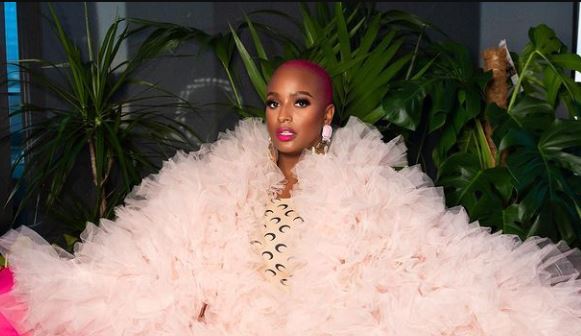I Felt Insecure About How People Viewed My Haircut - DJ Cuppy Opens Up
Posted by Samuel on Thu 27th Jan, 2022 - tori.ng
DJ Cuppy
DJ Cuppy, the Nigerian music artiste and disk jockey, has lamented that she felt insecure about how people viewed her haircut, adding that a lot of young black people were too superficial.
The singer said this when she was hosted by her long-time friend and online celebrity, Kiddwaya at an unplanned Instagram live session in the UK, on Thursday.
DJ Cuppy whose real name is Florence Otedola, is currently studying at Oxford University and at the beginning of 2022, she launched a new look as she cut her hair and dyed it pink, which is her signature colour.
She said felt a bit insecure about how people looked at her since she cut her hair. She lamented that the cruise on focusing on mundane things has gone a notch among young black people.
Cuppy said, “A lot of guys are not attracted to someone with short hair. And it’s really annoying because I’m the same person. To me, it made me insecure and I asked myself, ‘am I ugly?’
“I feel like as Nigerians and young black people, we need to stop being so on the surface. We are putting ourselves under too much pressure. Even with make-up, lashes, we cannot kill ourselves. Even weight is a thing.”
Cuppy, however, noted that she would prefer to be real. She also believes that sharing her real self in her relationship will keep it going in the good days and the bad days.
She said, “People adore my sister Temi, she is a fashionista, she is so graceful. We are from the same parents, but I am never going to look like her. It is important that we don’t put ourselves under pressure.
“You and I always talk about the premium cuppy, which is pressure in itself. If I don’t want to be this premium princess with pink long hair and wearing dresses all the time, so be it.
“The reality is that, if you are serious about your partner, your partner has to take you for the good days and bad days. One day, your partner is going to see your real hair. One day, she is going to see your false eyelashes fall off. Except you want to be fake for most of your relationship.”
Meanwhile, Kiddawaya said that women have the power to control the narrative on beauty.
They also acknowledged that a lot of Nigerians are going through mental health and socio-economic issues. However, Both of them felt that many Nigerian are dismissive of the pressures, and private struggles of privileged folks like themselves.













































